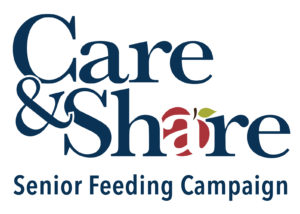Talk about steppin’ it up.
A recent state decision to redirect food assistance for low-income seniors from Lee, Charlotte and Collier to less wealthy inland counties meant that some 2,200 area seniors who’d come to rely on the monthly food delivery were going to have to go without.
The Harry Chapin Food Bank is rescuing the service, but it needs community help—to the tune of $1.1 million a year to supply food to these older adults. State Sen. Kathleen Passidomo kick-started the effort by securing $400,000 in state funding to Chapin’s new Care & Share program for seniors. It’s up to donors to come up with the remaining $700,000 this year—and, most likely, the full $1.1 million starting next year.
“We’re just grateful for the generosity of Southwest Florida,” says food bank CEO Richard LeBer. “We’ve had a tremendous outpouring of support already.”
It costs $500 to feed a senior for a year. The Care & Share program will provide about 30 pounds of food—a mix of proteins, produce, starches and dairy products—each month. According to LeBer, that’s enough to feed an older adult for one to two weeks.
The new program in essence replicates the Commodity Supplemental Food Program. That’s a federal program, but decisions on how to allocate resources are up to states. In Florida, the Department of Agriculture and Consumer Services decided to expand the program in Glades and Hendry counties and eliminate the service in Lee, Collier and Charlotte.
LeBer’s organization worried about what would happen to seniors who suddenly lost the monthly groceries.
“You’re talking about seniors who are 70, 80 years old. A lot of them have medical issues, mobility issues, transportation issues. They are very vulnerable people,” he says.
 |
|
Louise, a client of the Care & Share program |
In many cases, these clients once had sufficient retirement savings but medical emergencies drained their finances. “You develop a chronic condition … or have to get medical treatment on a regular basis; it gets very expensive very quickly,” he says.
One client, a retired cashier named Louise, says her fixed income leaves little wiggle room when emergencies arise. A recent car repair, for example, depleted her grocery budget. “I had to get my car fixed,” she said while picking up groceries from a Senior Friendship Centers site in Fort Myers. “I bought a little (food), but I can’t buy much.”
Nationally, hunger among older adults is a serious problem. The latest study from the organization Feeding America shows that:
- 1 in 11 seniors in America, about 5.7 million people over age 60, are food-insecure, meaning they don’t know where their next meal is coming from.
- An additional 6 million people ages 50 to 59 are food-insecure.
- Among the Feeding America member food banks (Harry Chapin is one), the median annual income of client households with seniors is $10,955.
To learn more about or contribute to the Harry Chapin Food Bank’s Care & Share program, visit harrychapinfoodbank.org.



